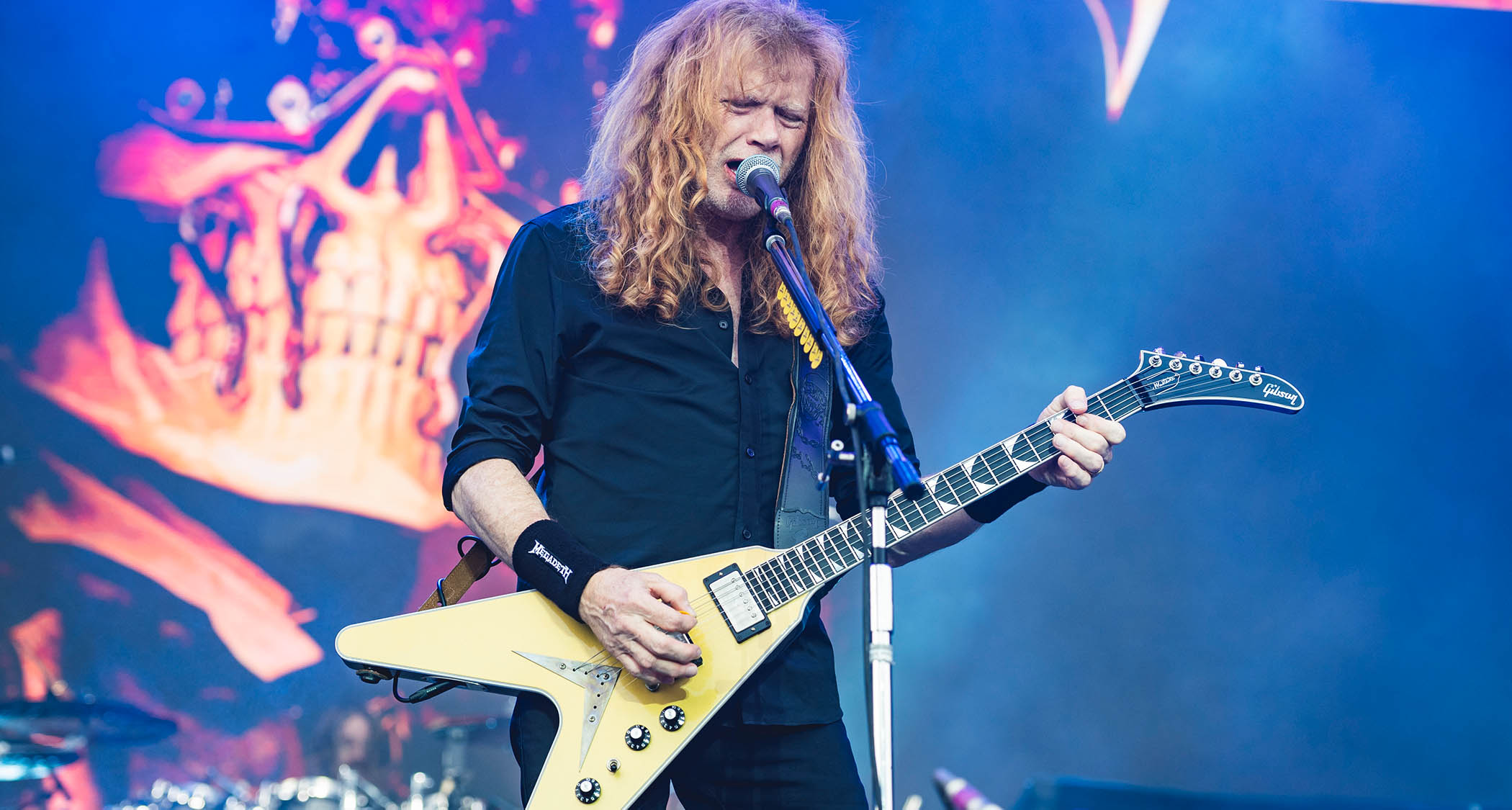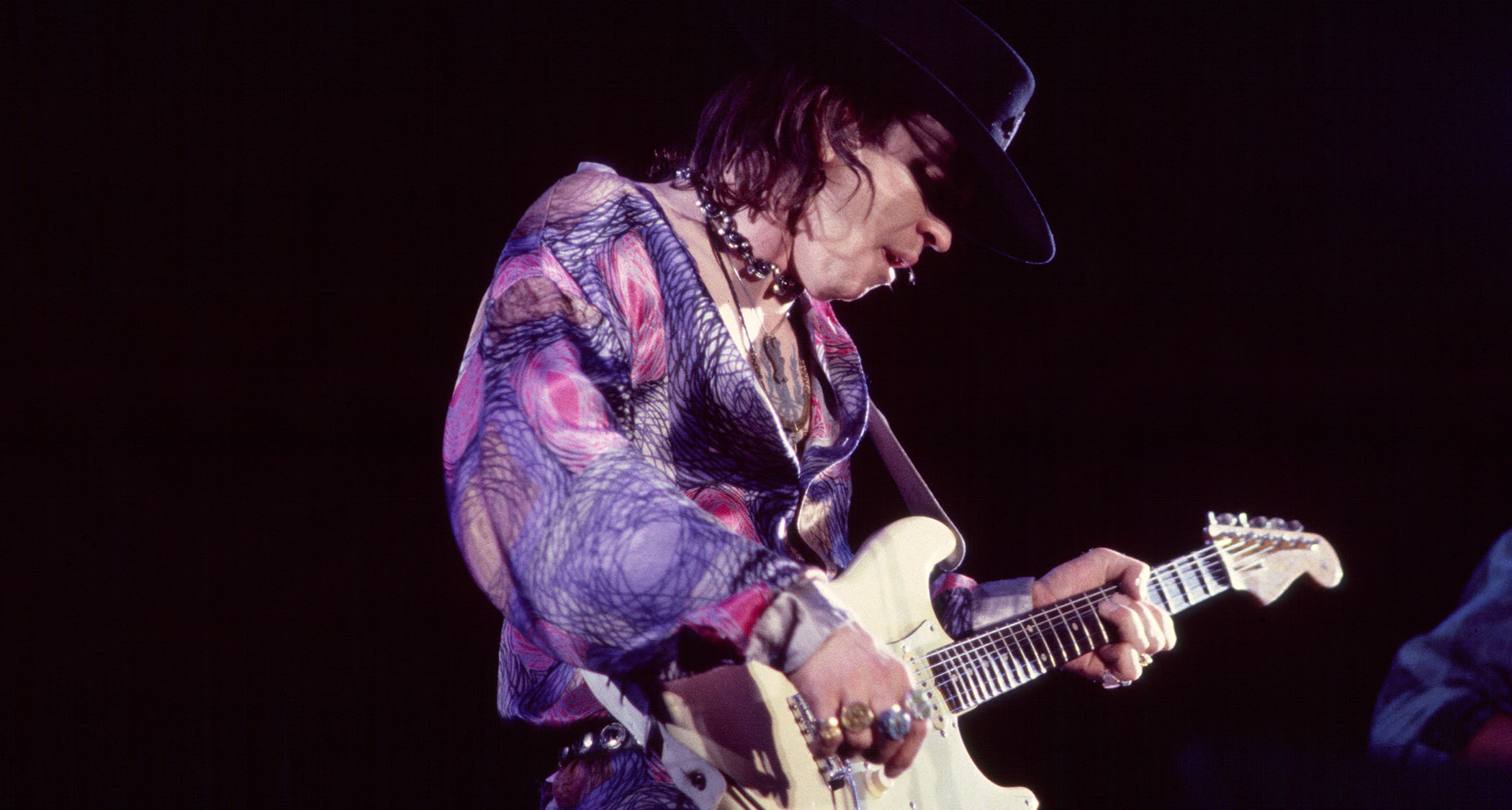“Learn how to play – because if you can’t play, you’ll find a pedal and you’ll cheat”: Dave Mustaine on guitar collecting, switching to Quad Cortex and why some players are “living a lie” with stompboxes
The Megadeth man recounts his longstanding love for Seymour Duncan humbuckers and why he’s finally – at the age of 62 – just getting the gear-collecting bug

All the latest guitar news, interviews, lessons, reviews, deals and more, direct to your inbox!
You are now subscribed
Your newsletter sign-up was successful
Until recently, Dave Mustaine didn’t seek out electric guitars; the guitars sought him out, with endorsements from Jackson, Dean, ESP and now Gibson providing the arsenal for Megadeth’s state-of-the-art metal guitar sound.
But things have changed. This artist relationship with Gibson has awakened the collector in him, and now it’s time to stop, look around and smell the nitrocellulose. Here, he discusses a life in gear, the electric guitars he most misses, his guitar amp philosophy, the advice he has for all players, and why he is now smitten by the amp modeler.
What was the first serious guitar that you purchased with your own money?
“My Jackson… no, my BC Rich Bich 10-string.”
What was the last guitar you bought and why?
“I just bought a Gibson Les Paul Silverburst; it’s the second guitar in my collection. I just started collecting guitars once I went to Gibson because… honestly, all of the guitar companies I’ve been with [have enabled me to play] really wonderfully made guitars. The collection I’ve got now includes a Les Paul Junior and the Silverburst – it’s kind of changing colours because it’s so old.”
What’s the most incredible bargain you’ve ever come across?
All the latest guitar news, interviews, lessons, reviews, deals and more, direct to your inbox!
“I don’t know… I really haven’t bought many guitars up until the last guitar I bought, which was the Les Paul. Gosh, I can’t even think about another guitar that I’ve bought lately because I’ve been so blessed to have endorsements for so long!”
Is there a guitar that you regret getting rid of?
“There are a lot of double-neck guitars that I’ve had to part ways with. And those were especially heartbreaking because the double-neck thing is kind of a work of art.”
What’s the worst case of buyer’s remorse you’ve ever experienced?
“I’ve had guitars that I really didn’t like, though I didn’t buy them, I possessed them. One that I really didn’t like was the aluminum Jackson [Roswell] Rhoads guitar. It didn’t sound good, didn’t play good, but it was a really neat moment.
I love what’s going on with my Gibson relationship. I look at a lot of that stuff
“Even though Randy Rhoads had passed on, I don’t think he was the guy who would have played an aluminum spaceship-shaped guitar. He was more along the lines of the shark fin and his Les Pauls.”
What’s your best gear-buying tip?
“Learn how to play. Learn how to play because if you can’t play, you’ll find a pedal and you’ll cheat. You’ll find a pedal that makes you sound really good and you won’t be really good; you’ll be living a lie. Once you learn how to play really good, you’ll see those pedals as exactly what they are: a simple non-moving, analogue device that is a signal processor.”
Do you have a favourite place to shop for gear?
“I like the Gibson Garage. And there are a couple of other places, but like I said, I’m not a real big guitar collector yet. But I am realising that in the next couple of years, I will be because I’ve actually started enjoying walking around.
“I guess I’m at an age now where going out and seeing and getting to know the community where we’re playing is great. I can feel like, ‘Man, I really do have an emotional connection with this city or county,’ before I can go out and play the show.”
When was the last time you stopped and looked in a guitar shop window or browsed online and what were you looking at?
“I love what’s going on with my Gibson relationship. I look at a lot of that stuff. We’re doing some models, like the Flying V with 24 frets, and we’ve talked about a couple of others and are making them perfect. One of those is the Dave Mustaine Les Paul. It will play like a beast, be a 24-fret guitar, and have the heel shaved down.”
If forced to make a choice, would you rather buy a really good guitar and a cheap amp, or a cheap guitar and a top-notch amp?
“I think I would rather have a great guitar. If you have a really bad guitar, all you’re going to be doing is amplifying a really bad guitar that’s really difficult to play. And if it’s difficult to play, it’s gonna be like anything; you won’t hear it right any more.”
I’m using a Neural effects processor now; it’s like having the key to the city... It does everything you can imagine
If you could only use humbuckers or single coil pickups for the rest of your career, which would it be and why?
“I don’t know what the single-coil thing is with me, but I’ve never really dug them. I know that I fell in love with Judas Priest in the beginning, and part of the sound that I liked was Glenn [Tipton]’s Strat on Victim Of Changes – that solo changed my world. Though it could have been K.K. Downing because I usually get who solos mixed up… [laughs] It was wonderful to hear, but it wasn’t my sound.
“My sound is humbuckers, which are brighter and crunchy. I have my Seymour Duncans – Seymour Duncan wrote the book on pickups. There’s a winder there who knows exactly what I like, and my [signature] Thrash Factors, to me, are the best pickups I’ve ever heard.
“They were modelled after Jeff Beck’s JB pickups [specifically the one on the guitar used to record fourth Megadeth album, Rust In Peace], and when I made my pickups, I said, ‘I want to have my own pickup,’ and so I made them mine. We noodled around with them and they’re great.”
Dave's go-to rig
“I’m using a Neural [DSP Quad Cortex] effects processor now; it’s like having the key to the city. I don’t know that there are a lot of beginners who are going to be able to make that kind of financial commitment to a piece of gear, but I absolutely love the processor. It does everything you can imagine. And I’m just getting started because there’s so much in there that you can go down a rabbit hole and never come up [laughs].
For real amplifiers, I have my JCM800 and a white Randy Rhoads head that I use when soloing in the studio, but I don’t let anyone play or touch it
“For real amplifiers, I have my [Marshall] JCM800 and a white Randy Rhoads head that I use when soloing in the studio, but I don’t let anyone play or touch it. I like the JCM800 for that natural, surging, loud English crunch.
“For guitars, it’s any one of my Gibson Flying Vs, although I love my Explorer and my Les Pauls. They all sound great. The only difference is the wood, the finishing process and if the guitar has binding because that changes the sound and how it vibrates from the centre to the edges.
“These are the things that are really neat and interesting and have to do with physics and logic and all that shit. Most guitar players don’t worry about that stuff, but I’m very picky.”
- The Sick, the Dying... and the Dead! is out now via UMe.
Andrew Daly is an iced-coffee-addicted, oddball Telecaster-playing, alfredo pasta-loving journalist from Long Island, NY, who, in addition to being a contributing writer for Guitar World, scribes for Bass Player, Guitar Player, Guitarist, and MusicRadar. Andrew has interviewed favorites like Ace Frehley, Johnny Marr, Vito Bratta, Bruce Kulick, Joe Perry, Brad Whitford, Tom Morello, Rich Robinson, and Paul Stanley, while his all-time favorite (rhythm player), Keith Richards, continues to elude him.





